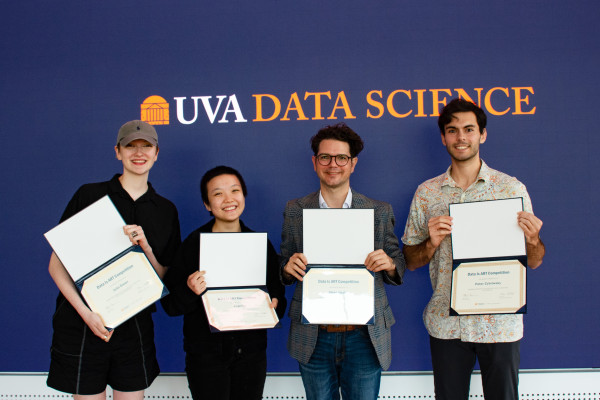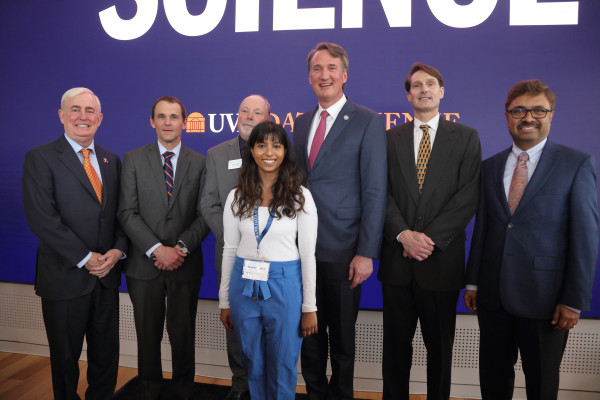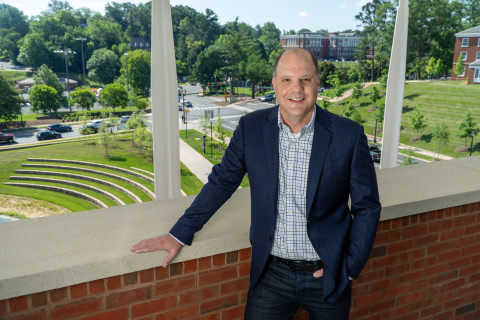
Data Base: Why Its New Building Is a ‘Game Changer’ for the School of Data Science
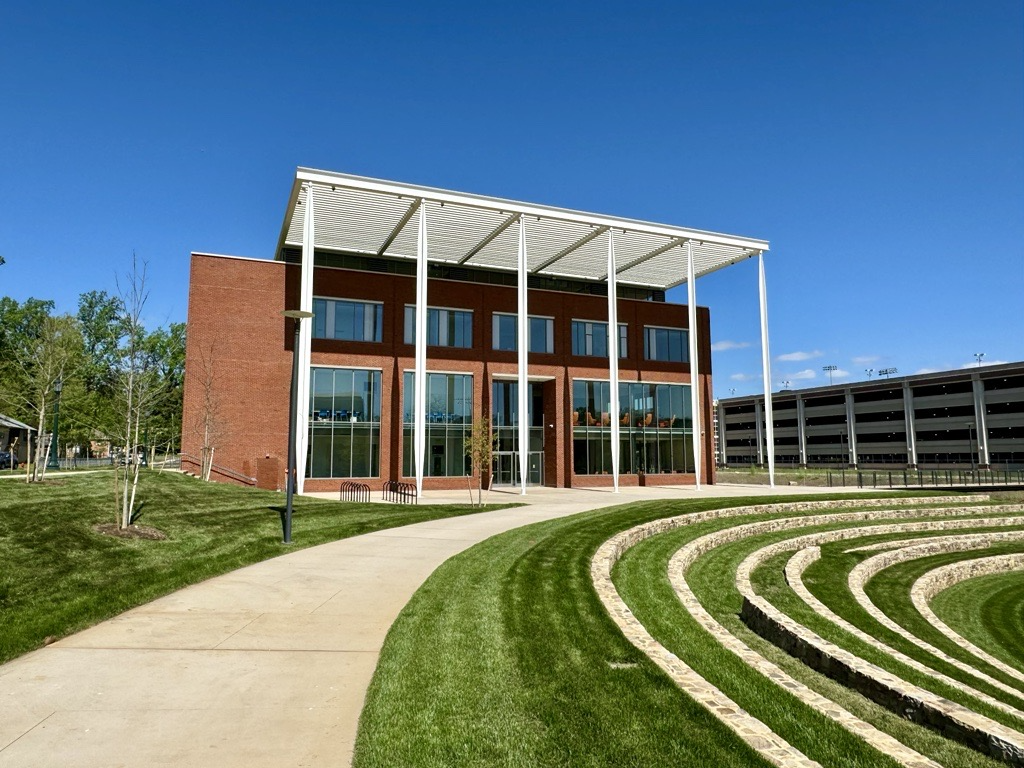
This article was originally published by the University of Virginia's Office of Advancement.
The School of Data Science recently celebrated the opening of its new home. The building consolidates the school, anchors the University’s emerging Emmet-Ivy Corridor, and tangibly demonstrates UVA’s commitment to enabling discoveries that improve lives.
“It’s a game-changer,” said Jeffrey D. Blume, Quantitative Foundation Associate Dean for Academic and Faculty Affairs. “To me, the most important part is that there is now a space for data science.” Having a place where faculty and students can study, work, and interact creates what Blume characterized as “the full embodiment of what data science is as a discipline.”
An intellectual hotbed
Blume added that learning, teaching, and researching in the new building will be a community-building exercise. “It’s not just a physical space; it’s an intellectual space for data science where people can form their ideas into what it means to be a data scientist,” he said. The resulting impact will be felt by faculty and students within the School of Data Science, across the University, and beyond.
With everyone in the school under one roof, a sense of connection will foster closer relationships. For faculty such as Blume, that means more time to spend on science, research, and students instead of traveling to different locations across Grounds. For students, having a dedicated home will make it easier to connect with faculty and each another.
“The building is a bright and uplifting environment,” Blume said. “There are a lot of open spaces, and the students and faculty are working side-by-side. It’s a beautiful space, and so people will want to be there.”

Blume is especially excited about the custom-designed classrooms, which feature special desks and an abundance of video screens for interactive and hybrid learning. The spaces complement the school’s evolving curriculum, which emphasizes interaction rather than traditional-style lectures. “We’re providing opportunities for the students to synthesize the material and make the concepts their own,” he said.
From a broader perspective, the new 61,000-square-foot facility is a place where the University community can engage with the burgeoning field of data science. Blume called it “an intellectual hotbed of ideas,” adding: “Not many universities have such a place. We’re lucky.”
Blume highlights the Karsh Institute of Democracy — soon to be a neighbor on the Emmet-Ivy corridor — and its promotion of digital technology to support democracy as one example of pan-University partnerships furthered by the new facility. The school also hopes to explore ways to collaborate with the proposed Center for Performing Arts, also earmarked for the Emmet-Ivy corridor.
Making a statement
To Blume, perhaps the biggest effect of the School of Data Science won’t be visible through the LEED Gold-certified building’s expansive windows or evident at gatherings in the multistory hub space funded by a $2 million gift from Capital One.
“I’ve moved into two new buildings in both the places I’ve been before,” he said. “They absolutely, completely changed the culture of both places for the better. So, I’m looking forward to how the culture will evolve and what that will bring.”
The facility was constructed with a portion of the historic $120 million gift from the Quantitative Foundation, the private family foundation of Jaffray (McIntire ’91) and Merrill (Col ’98, Ed ’98) Woodriff. Thanks to the Woodriffs’ gift in 2019, which also funded six professorships within the school, UVA now has a home base for data science. “Their generosity is a statement that we are a leader in the data science space, and we’re committed to it,” Blume said. “It’s going to allow something to happen at UVA that has not happened anywhere else in the country. We could not have done it without philanthropy.”
Shaping data science
Stephen Baek, Quantitative Foundation Associate Professor in Data Science, shares his colleague enthusiasm for the school’s new home. “It’s a platform for all kinds of exciting ideas to emerge,” he said. Among his favorite spaces is the laboratory, a place where students can express their creativity and address real-world problems.
Baek knows all about solving real-world problems. He combines a mechanical engineering background with data science methodology to improve the ergonomics, performance, and efficiency of a range of products and systems by examining the shapes of structures and their correlation to physical properties.
The key is geometry.
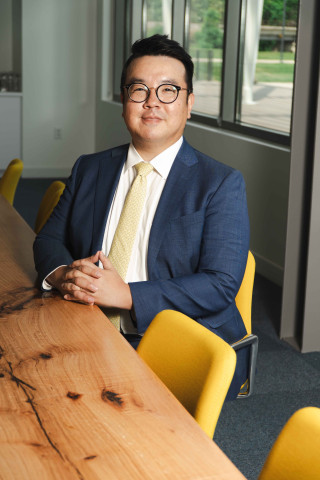
“Depending on the geometry, the performance of a system overall can change quite dramatically,” he said. But understanding and improving systems goes beyond the calculation-driven realm of mechanical engineering. “A data-driven approach requires more than just writing down an equation and solving it,” he said. Machine learning algorithms are needed to handle the large amount of information and endless variations found in complex systems such as cars, flowing water, tumors, or the human body.
Baek’s research on the impact of shapes has a wide-ranging set of applications. “We’re working on a Department of Defense project to develop so-called ‘energetic materials’ such as explosives or propellants,” he said, explaining that microscopic geometric formations determine the sensitivity of these materials and the rate at which they burn. This in turn impacts both their safety and performance.
Another aspect of Baek’s research involves sports and human movement. “People have all kinds of interesting geometry, and as the body moves, the geometry changes,” he said. By watching and analyzing video of athletes, Baek and his colleagues are helping competitors, teams, and leagues reduce injury and increase performance.
Without private funding, Baek acknowledges that much of his work wouldn’t be possible. “There are really important problems that need to be tackled that aren’t within the scope of federal funding agencies,” he said. “Philanthropy supports research so we can translate our scientific knowledge into useful solutions.”
